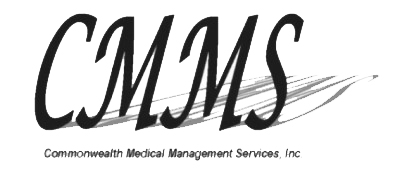
Providing health care can be a complicated and difficult practice in many ways. The idea of operating any business is to make a profit, and your business will, of course, not be able to stay afloat if you don’t. But then, the reason you likely got into health care to begin with is not to make money but rather to help people.
Everyone is going to need medical attention at some point, and unless they are willing to get their procedure done in a shady back-alley, they will have to pay for it. So it is your responsibility to make it the best possible experience for them in every way, including financially.
One of the simplest, but often neglected ways to do this is to make their billing process as simple and hassle-free as can be. The first step to achieving this goal is to avoid as many mistakes as possible in your billing process.
If you follow these five steps, then you can make that happen.
1. Be Careful
As obvious as it may seem, taking care is always going to be the first step in avoiding and eliminating mistakes, especially in a process like medical billing.
Most mistakes are going to come from sloppy data entry. Upon reviewing a process that went awry, you will find that many times it simply started with a mix-up, a wrong address, or the misspelling of a name.
You and your employees alike probably loathe doing paperwork, much like the rest of the employees in every industry across the world. During the long, discouraging march of paperwork, it is easy to become discouraged, disillusioned, and distracted. This can lead to rushing, and rushing will ultimately always lead to mistakes.
There is no way to make yourself or your employees enjoy completing paperwork. So the only way to change this vicious cycle is to incessantly review or spot-check any paperwork time and time again. Encourage your employees to review anything they’ve written or entered into the computer as many times as they feel necessary before finalizing it.
Simply review, review, review. It’s the only way to avoid silly mistakes.
2. Triple-check All Patient Information
Health care is ultimately a customer service, and like any customer service, the customer can cause quite a bit of problems. Some customers can be difficult and uncooperative, while other customers can just be ignorant.
Unfortunately, patient information is an incredibly crucial part of any medical billing practice. Therefore, an infrastructure must be in place to make sure all information received from your patients is verified multiple times before any billing needs to happen.
It’s helpful to have patients communicate their information verbally, as well as through writing, and then to have the doctor confirm both sources.
3. Stay in Touch with Insurance
Dealing with medical insurance can be just as difficult for the health care provider as it is for the patient. It is in the business interest of insurance companies to deny their patients’ coverage when at all possible. So help your patient by constantly confirming the information they relay to you with their insurance.
Policies can be complicated, so no matter how confident a patient is that their insurance has them covered, verify with the insurance provider that they have their facts straight. In the end, nothing moves ahead without the insurance company on board.
4. Automate Claims
Utilizing the variety of systems available to automate the generation and management of your bills will eliminate a number of errors at your employee level. It’s much easier for an automated system to copy patient and insurance information from one form to another without any inconsistencies. It’s also a time and money saving endeavor.
When using these systems, though, it is important to remember that computers make errors as well. Make sure anything created by these systems is seen by human eyes before being finalized.
5. Focus on Coding
Coding on medical bills is wildly complicated and confusing, but is absolutely essential to the process. If you fail to code properly, it is incredibly unlikely that you will get the payment you deserve.
Billing management systems will often catch improper codes, but it is worth dedicating a lot of energy and resources towards. It is also important to keep a conversation going between your coders and your billers in order to keep them on the same page.
